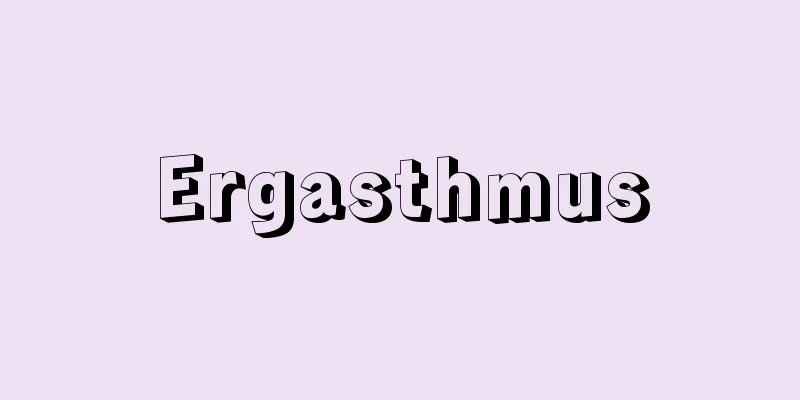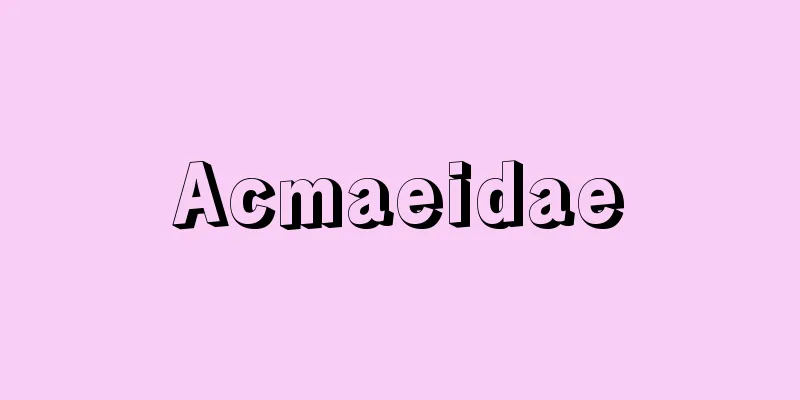Ligature

|
...Moreover, it can be considered as a series of developments that can be inferred from today's national clothing. The first is the series of loincloths, which originated from ligatures called chuui (string garments) and led to loincloths made of grass, bark, animal skins, and woven fabrics, and are seen today among peoples in parts of Africa and Oceania. The second is the series of wrapped garments called draperies, which are seen in parts of Africa and the Islamic world. *Some terminology explanations that mention "ligature" are listed below. Source | Heibonsha World Encyclopedia 2nd Edition | Information |
|
…しかもそれはそのまま今日の民族服から類推された一つの発展系列ともみなされる。第1は紐衣(ちゆうい)と名づけられるリガチュアligatureに発し,草,樹皮,獣皮から織物による〈腰衣〉にいたるロインクロスloinclothの系列で,今日,アフリカの一部やオセアニアの民族の間に見られる。第2はドレーパリーdraperyといわれる〈巻き衣〉の系列で,アフリカやイスラム圏の一部に見られる。… ※「ligature」について言及している用語解説の一部を掲載しています。 出典|株式会社平凡社世界大百科事典 第2版について | 情報 |
Recommend
Hexaplex trunculus; trunculus murex
Mollusca, Gastropoda, Muricidae. Shell height 7.5c...
Borchgrevink, CE (English spelling) BorchgrevinkCE
… As the 20th century began, the trend toward the...
Cloud cover meter (English spelling) nephometer
Cloud cover is the percentage of the entire sky th...
Management position - Kanri-shoku
〘 noun 〙 A person who is in a managerial or superv...
Ikawa Dam - Ikawa Dam
(Aoi Ward, Shizuoka City, Shizuoka Prefecture) A t...
Counter-transference
… In psychoanalytic therapy, the therapist is req...
Lilium speciosum (English notation)Lilium speciosum
…[Tetsuichi Yahara]. … *Some of the terminology t...
Big boss politics - Ogosho Seiji
The former Shogun continues to hold real political...
Deterioration - Rekka (English spelling)
Damage to materials caused by physical, chemical, ...
Cordulegasteridae
...Several similar species are known from China t...
Shrub - Kanboku
〘 noun 〙 A woody plant that is short and has an un...
White jasmine - White jasmine
A deciduous tall tree of the Styrax family (APG c...
Proxemics
A field of cultural anthropology that studies the ...
Audio
…In 1806, De Forest added a third electrode grid ...
Apicius, G.
...A particularly notable trend in France since t...









